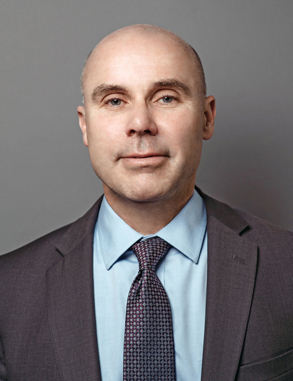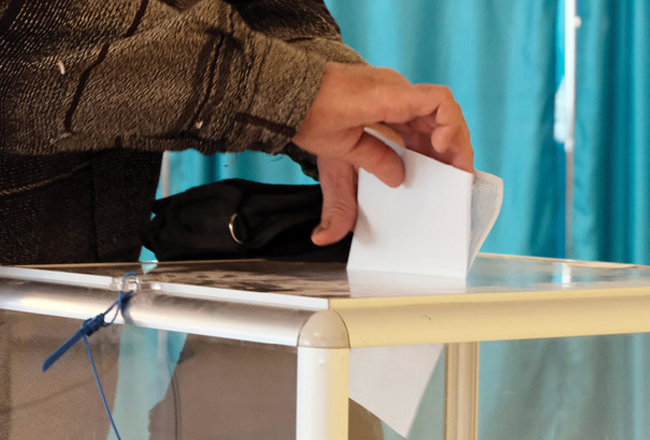NOTE: A plethora of new federal and state laws regarding coronavirus inspired paid leave were passed after the submission of this article. The author will cover these new laws in an upcoming column. The author advises that the new laws have not negated the employer penalties discussed in this article.
 Many of our clients have been consulting us regarding paid leave requests they anticipate related to the coronavirus pandemic. Employers should be aware of the penalties for an unlawful denial of such requests under paid sick leave laws enacted by Westchester County.
Many of our clients have been consulting us regarding paid leave requests they anticipate related to the coronavirus pandemic. Employers should be aware of the penalties for an unlawful denial of such requests under paid sick leave laws enacted by Westchester County.
The penalties include fines, back pay, job reinstatement and the payment of the employee”™s attorneys”™ fees. In the current environment, an employer”™s unlawful denial of a coronavirus-based paid leave request would likely be met with palpable disdain by Westchester County agencies.
In 2019, Westchester County passed the Earned Sick Leave Law and separately passed the Safe Time Leave Law.
In 2018, New York City amended its Earned Sick Time Act to provide for safe time off needed by employees, and amended the title of the law to the Earned Safe and Sick Time Act.
The primary purpose of these sick leave laws is to provide employees up to five days of leave to seek medical treatment for themselves or to address medical treatment needed by family members. The primary purpose of the safe leave laws is to provide up to five days of leave for employees who are victims of domestic violence and human trafficking in order to attend criminal and civil court proceedings and/or relocate to a safe location needed in those circumstances. Under these laws, employers who employ five or more employees are required to provide paid leave and employers who employ less than five employees are required to provide unpaid leave.
The Westchester and New York City laws bar an employer from conditioning an employee”™s use of earned sick or safe time on the employee securing a substitute worker to cover the work during the employee”™s absence.
Westchester County requires the employer to notify employees when they are hired of the safe/sick leave laws by providing a copy of them and written notice of how the laws apply to the employee. Westchester County employers must also display a copy of the laws in a conspicu- ous location accessible to employees.
Similarly, New York City requires employers to provide new employees with written notice of the right to safe/sick time, including the accrual and use of such time, the calendar year of the employer, the right to be free from retaliation and the right to file a complaint with the Department of Consumer Affairs if the leave rights are not provided. New York City allows the employer to provide this notice by conspicuously posting the information in an area accessible to employees.
WESTCHESTER COUNTY PENALTIES
Under the Westchester County laws, employers who willfully fail to provide the required Notice of Leave Rights are subject to a civil fine in an amount not to exceed $500 for each sep- arate offense. Employees who may be aggrieved can file a complaint with the Department of Consumer Protection (DCP) that will initially try to resolve the dispute. If that effort is unsuccessful, the DCP will hold a hearing and can issue penalties including:
Ӣ Requiring the employer to pay the employee three times the wages that should have been paid or $250, whichever is greater, for each instance of sick time taken by an employee but unlawfully not compensated by the employer.
Ӣ Requiring the employer to pay the employee $500 for each instance of sick time requested by an employee but unlawfully denied by the employer and not taken by the employee, or unlawfully conditioned upon searching for or finding another employee to work.
Granting such additional relief, as it deems appro- priate, such as the full amount of any unpaid earned sick time plus any actual damages suffered as a result of the employer”™s violation of the law, reasonable attorneys”™ fees, cost of the administrative hearing and other monetary or equitable relief as may be appropriate, including reinstatement to employment and back pay.
NEW YORK CITY PENALTIES
Under New York City”™s laws, employers who fail to provide the required Notice of Leave Rights are subject to a civil fine in an amount of $50 for each separate offense. If an employee files a complaint with the Department of Consumer Affairs (DCA), the DCA will investigate and attempt to mediate a settlement. If as a result of the investigation the DCA believes there has been a violation, it can impose penalties, parts of which are identical to those that Westchester can impose, including:
Ӣ For each instance of sick time taken by an employee but unlawfully not compensated by the employer, three times the wages that should have been paid under this chapter or $250, whichever is greater.
Ӣ For each instance of sick time requested by an employee but unlawfully denied by the employer and not taken by the employee or unlawfully conditioned upon searching for or finding a replacement worker, or for each instance an employer requires an employee to work additional hours without the mutual con- sent of such employer and employee to make up for the original hours during which such employee is absent, $500.
Ӣ For each instance of unlawful retaliation not including discharge from employment, full compensation, including wages and benefits lost, $500 and equitable relief as appropriate.
Ӣ For each instance of unlawful discharge from employment, full compensation, including wages and benefits lost, $2,500 and equitable relief, including reinstatement.
Any person or entity found to be in violation of the New York City safe/sick leave law shall be liable for a civil penalty payable to New York City not to exceed $500 for the first violation and, for subsequent violations that occur within two years of any previous violation, not to exceed $750 for the second violation and not to exceed $1,000 for each succeeding violation.
New York City passed its paid sick leave law in 2014. According to a December 2019 DCA press release, as of that date, New York City had received more than 2,000 complaints regarding safe/sick leave and collected nearly $11.5 million in combined fines and restitu- tion for more than 35,300 workers.
Two of New York City”™s more notable prosecutions were against Starbucks Corp. and Chipotle Mexican Grill Inc.
Starbucks violated New York City”™s safe/sick leave law by a policy that required employees to find a substitute worker to qualify for sick leave, and face corrective action including termination if they could not find one. By a settlement agreement that went into effect on Dec. 19, 2019, Starbucks paid $26,000 to be distributed to workers previously identified as being damaged by the unlawful policy and established a $150,000 fund to compensate other claimants.
Last month, after the city found that Chipotle had fired an employee for using sick leave, Chipotle agreed to pay the employee $2,500 and rehire her.
The New York City and Westchester County safe/sick leave laws have teeth and employers can suffer material consequences if they fail to comply with them, including with respect to a coronavirus-based claim.
There are exceptions to these rules that are not addressed here, most significantly with respect to domestic workers.
Jack Malley is a partner at Smith Buss & Jacobs LLP.

















